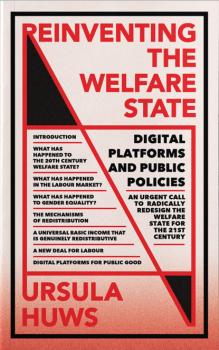Ursula Huws
Список книг автора Ursula HuwsReinventing the Welfare State
The Covid-19 pandemic has tragically exposed how today’s welfare state cannot properly protect its citizens. Despite the valiant efforts of public sector workers, from under-resourced hospitals to a shortage of housing and affordable social care, the pandemic has shown how decades of neglect has caused hundreds to die. In this bold new book, leading policy analyst Ursula Huws shows how we can create a welfare state that is fair, affordable, and offers security for all. Huws focuses on some of the key issues of our time – the gig economy, universal, free healthcare, and social care, to criticize the current state of welfare provision. Drawing on a lifetime of research on these topics, she clearly explains why we need to radically rethink how it could change. With positivity and rigor, she proposes new and original policy ideas, including critical discussions of Universal Basic Income and new legislation for universal workers' rights. She also outlines a 'digital welfare state' for the 21st century. This would involve a repurposing of online platform technologies under public control to modernize and expand public services, and improve accessibility.
Labor in the Global Digital Economy
For every person who reads this text on the printed page, many more will read it on a computer screen or mobile device. It’s a situation that we increasingly take for granted in our digital era, and while it is indicative of the novelty of twenty-first-century capitalism, it is also the key to understanding its driving force: the relentless impulse to commodify our lives in every aspect. Ursula Huws ties together disparate economic, cultural, and political phenomena of the last few decades to form a provocative narrative about the shape of the global capitalist economy at present. She examines the way that advanced information and communications technology has opened up new fields of capital accumulation: in culture and the arts, in the privatization of public services, and in the commodification of human sociality by way of mobile devices and social networking. These trends are in turn accompanied by the dramatic restructuring of work arrangements, opening the way for new contradictions and new forms of labor solidarity and struggle around the planet. Labor in the Global Digital Economy is a forceful critique of our dizzying contemporary moment, one that goes beyond notions of mere connectedness or free-flowing information to illuminate the entrenched mechanisms of exploitation and control at the core of capitalism.

